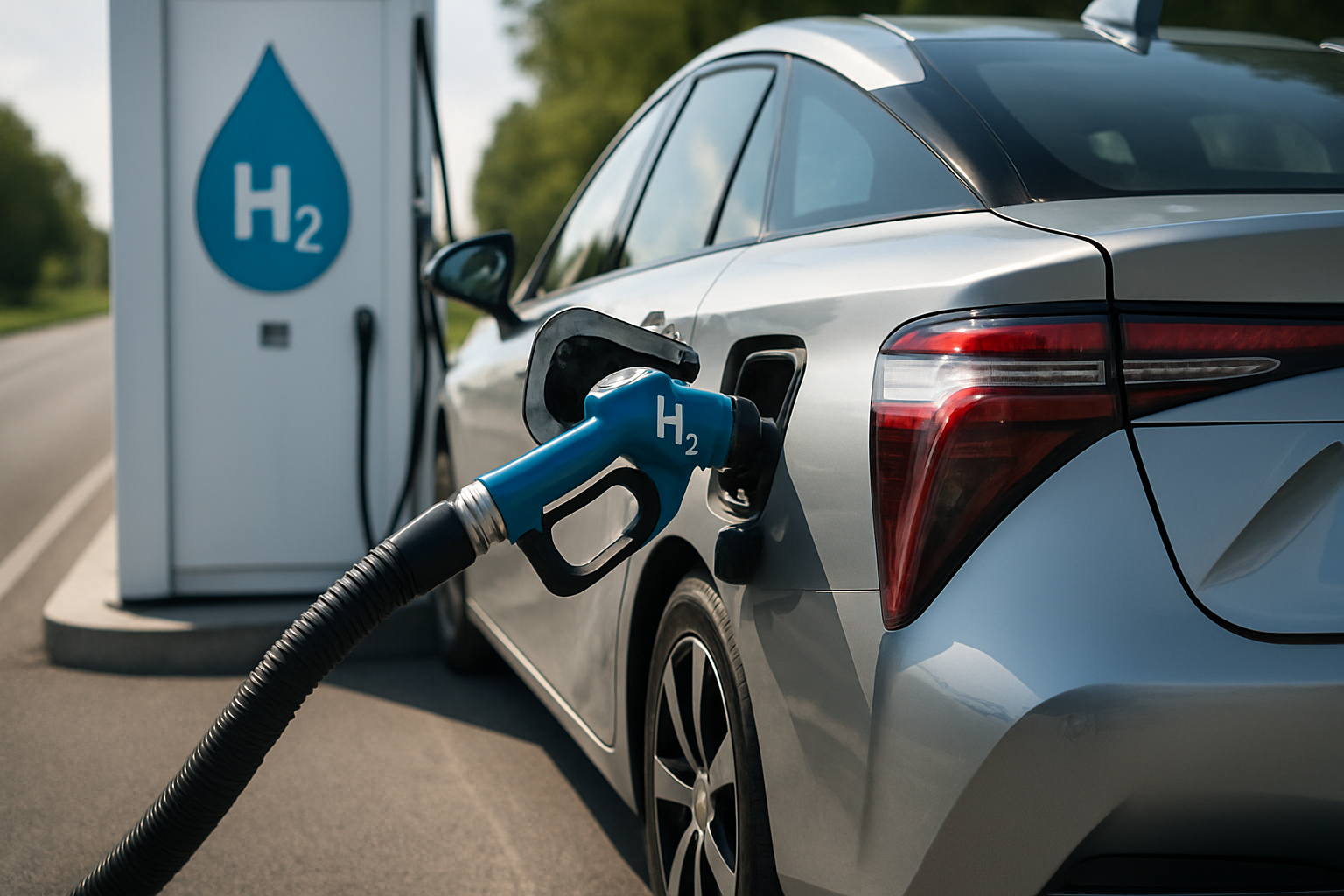Hydrogen Fuel Cell Vehicles: The Next Frontier in Clean Transportation
In a world increasingly focused on sustainable transportation, hydrogen fuel cell vehicles (FCVs) are emerging as a promising alternative to traditional combustion engines. This cutting-edge technology harnesses the power of hydrogen to produce electricity, offering a clean and efficient driving experience. As automakers and governments alike invest in hydrogen infrastructure, FCVs are poised to revolutionize the automotive landscape. Let's delve into the world of hydrogen-powered vehicles and explore their potential to reshape our roads and our relationship with personal transportation.

A Brief History of Hydrogen in Automotive Applications
While hydrogen fuel cell technology may seem like a recent innovation, its roots in the automotive industry stretch back several decades. The concept of using hydrogen as a fuel source for vehicles was first explored in the 1960s, with NASA leading the charge in developing fuel cells for space missions. However, it wasn’t until the late 1990s and early 2000s that major automakers began seriously investigating hydrogen as a viable alternative to fossil fuels.
Current State of Hydrogen Fuel Cell Vehicles
Today, several automakers have entered the hydrogen arena, with companies like Toyota, Honda, and Hyundai offering commercially available FCVs. These vehicles boast impressive ranges, often exceeding 300 miles on a single tank of hydrogen. As refueling infrastructure expands, particularly in regions like California, Japan, and parts of Europe, FCVs are becoming an increasingly practical option for environmentally conscious consumers.
Advantages of Hydrogen Fuel Cell Technology
One of the most significant benefits of FCVs is their rapid refueling time. Unlike battery electric vehicles, which can take hours to charge, hydrogen vehicles can be refueled in a matter of minutes, making them ideal for long-distance travel and commercial applications. Additionally, FCVs offer a longer range than many battery electric vehicles, addressing the issue of range anxiety that often plagues electric car owners.
Challenges Facing Widespread Adoption
Despite their potential, FCVs face several hurdles on the road to widespread adoption. The most significant challenge is the lack of hydrogen refueling infrastructure. Building a network of hydrogen stations requires substantial investment, and the chicken-and-egg problem of infrastructure versus vehicle adoption has slowed progress. Additionally, the production of hydrogen itself can be energy-intensive, raising questions about the overall environmental impact of FCVs.
Innovations in Hydrogen Production and Storage
To address concerns about hydrogen production, researchers are developing more efficient and sustainable methods. Green hydrogen, produced using renewable energy sources like solar and wind power, offers a truly clean fuel cycle. Advances in electrolysis technology are making this process more cost-effective and scalable. On the storage front, new composite materials and innovative tank designs are allowing vehicles to carry more hydrogen safely, extending range and improving overall performance.
The Role of Government Policy and Industry Collaboration
The future of hydrogen fuel cell vehicles depends heavily on supportive government policies and industry cooperation. Many countries, including Japan, South Korea, and Germany, have implemented ambitious hydrogen strategies, offering incentives for FCV adoption and investing in infrastructure development. Collaborative efforts between automakers, energy companies, and governments are crucial for creating a viable hydrogen ecosystem and driving down costs through economies of scale.
FCVs in Commercial and Industrial Applications
While personal vehicles often dominate the conversation around FCVs, the technology shows immense promise in commercial and industrial applications. Hydrogen fuel cells are particularly well-suited for heavy-duty vehicles like buses, trucks, and forklifts, where long range and quick refueling are essential. Several companies are already deploying hydrogen-powered fleets, demonstrating the technology’s potential to revolutionize transportation logistics and reduce emissions in traditionally high-polluting sectors.
The Future of Hydrogen Mobility
As we look to the future, hydrogen fuel cell vehicles represent a compelling vision of sustainable transportation. With ongoing advancements in fuel cell technology, hydrogen production, and infrastructure development, FCVs are poised to play a significant role in the diverse landscape of clean mobility solutions. While challenges remain, the potential benefits of widespread FCV adoption – from improved air quality to energy independence – make it a technology worth watching and supporting as we transition to a more sustainable automotive future.





